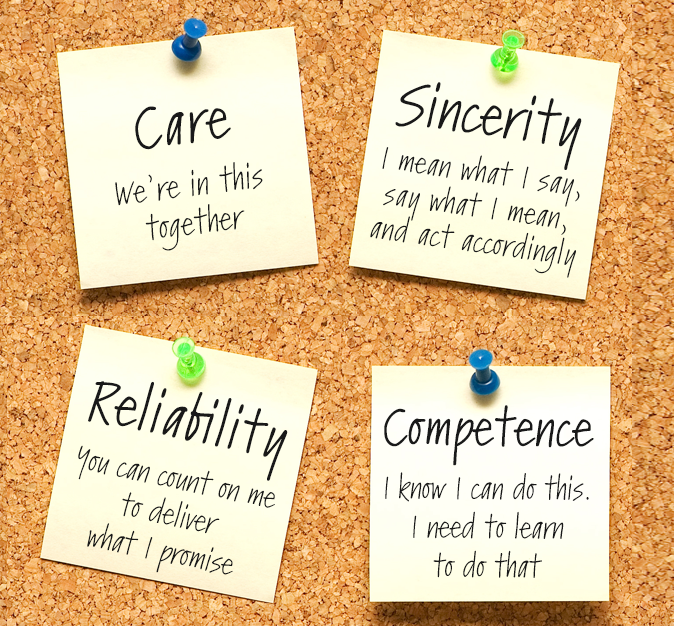There’s little more spicy or sometimes feisty than real-deal academic conflict. But unfortunately, all too often, we tend not to handle it well. Tension abounds. Issues become big anxieties. Relatively common challenges are rendered “crises.” More damagingly, feelings are hurt and relationships burned — not just for a moment, but sometimes for years and entire careers.
But, of course, when we’re a central party in a conflict, the stakes feel anything but low. We might wonder, Why won’t they listen? Why are they determined to crush what is important to me? Why aren’t I seen or respected? Others’ wrongness and stubbornness jar and frustrate us.
Academic conflicts can be as diverse as those involved — spanning across aspects of scholarship (such as ethics, research methods, and pedagogy), law and policy (from colonial structures, to recognition of intellectual property, to job role entitlement), and protocol (from the allocation of authorship, to the allocation of roles).
Academic conflict can also be played out in official forums, like faculty meetings, general faculties council and team meetings, or through gossip and coffee conversations. Often the most intense conflicts are characterized less by heated confrontation and deliberation than by cold silence and steadfast avoidance.
How then can we handle conflict better?
Thrive in conflict situations
Pilots don’t get trained for cloudless skies. This is because intense weather, unpredictable events, and pressures of both time and situation are sufficiently rife to require professional pilots to be at their best when conditions get worse. This is when a professionals’ values, experience and skills matter most. Why then does conflict so often bring out the worst in us rather than the best? Recognizing that conflict is inevitable in academia provides an impetus for developing our self-knowledge, skills and practices in navigating conflict situations. Can we stay curious, keep listening and be truly empathetic when in conflict with those holding demonstrably different views and values? Developing skills for perceiving and navigating conflict situations adeptly are as useful in academia as those for writing or speaking well. A raft of resources on having difficult conversations and crucial conversations can be our flight manuals for the challenges that come our way.
Remember: diversity creates conflict
What’s curious about conflict in academia is not only that it is inevitable, but it’s also a precious reflection of the diversity we value. Given academics’ different schooling, academic journeys, disciplines, genders, philosophies and political beliefs alone, it’s actually startling that conflict is not far more prevalent. With this expanse of diversity at play, agreement should be the exception not the norm.
It’s not then that conflict is the problem, but how we see and handle conflict. Viewing conflict through a diversity lens reframes our differences to be inevitable and precious expressions of what makes us each unique in our values, perspectives and passions. This reframing reminds us how much we can learn from others, and how valuable diverse views can be to tackle everything from complex institutional challenges, to research questions. Diversity makes us more creative, challenges us to synthesize diverse perspectives, and can help us work through difficult experiences.
Trust grows best in difficult places
Even when a conflict seems never-ending or mind-blowing, good can always accrue. Even when you’re in the thick of conflict, you can always choose to act with the intention of increasing trust.
Trust is so key in academia because without it, even the most mundane of actions or interactions is problematic. In our daily work, trust is at stake in every conversation, interaction or perception. Its absence can render our supposedly well-intended actions to be met with incredulity, indifference or hostility. But with trust, individuals, teams and communities can get through virtually everything.
An invaluable asset to navigating trust well in academia is The Thin Book of Trust, which defines trust as “choosing to risk making something you value vulnerable to another person’s actions.” Rather than leave us with this definition, the book helpfully breaks trust down into four key components related to care, sincerity, reliability and competence.

This means that during a conflict, our interactions and reactions can always seek to grow in one or more of these realms. When you’re next in a conflict situation, can you ensure your words embody your true feelings? What can you do to show care for others?
Conflict situations actually provide precious opportunities to build trust in new and different ways because conflict occurs around situations we and others are passionate about. Even when this feels tough and demanding beyond our comprehension, we need to show up to preserve and build trust.
